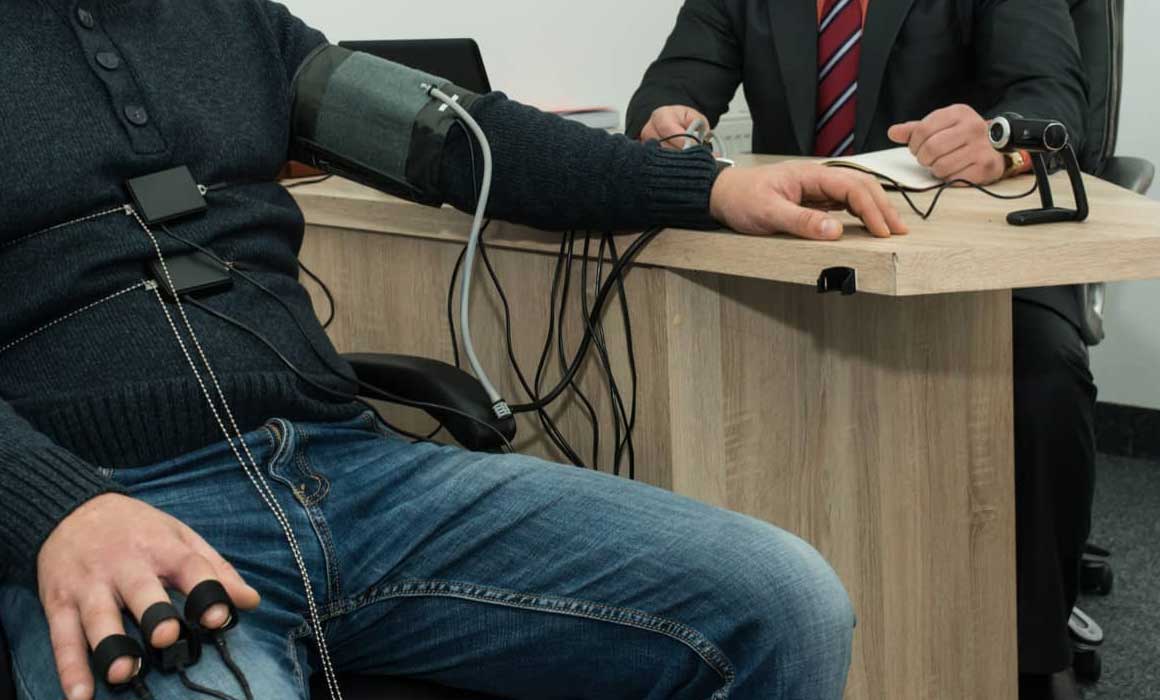Arraignment Basics and Advantages of Private Counsel
Anyone who has never been to an arraignment may be unsure of what they are and how the procedure works. When someone is arrested, they will be required to appear in front of a federal or state judge. Arraignments are court proceedings where criminal defendants are legally advised about their charges. They are defined as a presentation of charges or initial appearances.
Timing
In most cases, arraignments take place within a reasonable time following an arrest. Otherwise, there is the possibility of the case being dismissed due to the delay; the Sixth Amendment guarantees the right to a speedy trial. If the suspect is in jail, the arraignment should be held within 48 hours of the arrest. When the suspect is not in jail, the arraignment often happens a few weeks afterwards.
The first step towards an arraignment is when the defendant receives a written accusation from the prosecutor’s office. The defendant must respond to the charges verbally, and most reply not guilty. The judge will then set a schedule for courtroom proceedings, such as pretrial conferences, hearings, and the actual trial. Bail may be set or the defendant might be released on their own recognizance.
Arraignment Process
During the arraignment, defendants may also be advised of their constitutional rights, such as the right to counsel. They are also required to enter a plea of guilty or innocent. The court may wish to know if the defendant plans to hire a lawyer, may decide to set bail and its amount, and establish the conditions for release. The latter can include a ban on having contact with a plaintiff or travel restrictions. Other topics for consideration include the defendant’s release date and a schedule for further proceedings, like preliminary hearings.
If the charges against a defendant change appear emerge after the initial court appearance, a subsequent arraignment may take place. This can happen if new information is discovered at a preliminary hearing. In states that combine probable cause determinations with arraignments, defendants may be released if the court does not find probable cause that the defendant committed the crime.
How Lawyers Can Help
Hiring a criminal defense attorney before the arraignment provides certain advantages and can even derail cases. A main advantage is being able to expose a case’s weaknesses before events are in motion. Oftentimes, the courts have heavy caseloads, so weaker cases manage to fall through.
In the best scenario, a pre-arraignment meeting between the prosecutor and attorney could take place and the case could get dismissed. This option usually only exists for defendants who have arranged for private counsel before the arraignment. Defendants who choose court-appointed counsel may not even get someone appointed until the actual arraignment time. An experienced criminal attorney will also be familiar with any applicable state and federal laws that may apply to the arraignment.
Cherry Hill Criminal Lawyers at Aita Law, LLC Advocate for the Accused and Help with Arraignments
If you must attend an arraignment, it is essential to hire a knowledgeable lawyer that will help you with your court appearance. Our experienced Cherry Hill criminal lawyers at Aita Law, LLC will help you through the legal process of arraignments. In some cases, private counsel before arraignments are possible. Contact us online or call us at 856-287-7800 for a free consultation. Located in Haddonfield, New Jersey, we serve clients in Camden County, Cherry Hill, and throughout South Jersey.
Falsely Accused of Sexual Assault in New Jersey?
Five Things You Must Do Next
1. Realize How Much Trouble You Could Be In
When they are first accused of sexual assault, many innocent people naively assume they have nothing to fear. They assume justice and truth will line up without much work on their part to vindicate them. That’s a dangerous way to think.
Officers and courts want to punish someone to give the victim a sense of closure and show the public that a dangerous predator is now off the street, even if that someone is not the perpetrator—or the victim is not a victim at all.
Unfortunately, many innocent people don’t realize the error of their ways until they’re wearing prison orange. Prosecutors, police, juries, and family courts usually begin a sexual assault case sympathetic to the victim. Not taking accusations seriously is an express ticket to jail and the sex offender registry.
New Jersey treats sexual assault as one of the most heinous crimes. The penalties for sex crimes make homicide charges look like a slap on the wrist. Beyond the prison sentence—which can span over a quarter of a decade—someone convicted of sexual assault, rape, or similar crimes will be registered as a sex offender, branded as a pervert and a public enemy to the day they die.
Under New Jersey’s “Megan’s Law”, once convicted of a sex crime you will be on a public database, monitored by police, required to verify your location every three months to a year. You may also be barred from many kinds of employment. Once accused of a sex crime, you need to fight back from day one.
2. Do Your Homework – Find a Great Defense Lawyer
If you are formally accused of sexual assault you will need a lawyer. And not just any lawyer, but an experienced defense attorney with a track record of beating similar charges.
There are times in life when budget service will do. Facing a lifetime of shame and surveillance? A quarter of a century behind bars? That is definitely not the time to go bargain hunting. Don’t trust your life to the first name in the phone book or the flashiest TV ad.
Read up on any lawyers you are considering, including their background and their victories. Choose a lawyer who has experience defending against sexual assault allegations. Don’t be afraid to ask questions, and don’t settle on a lawyer you don’t feel comfortable with. If you choose poorly the first time, there is no guarantee of a second chance. Your lawyer’s personality is important too, since you will be working closely with the man or woman you choose though some of the most difficult days of your life.
3. Watch What You Say and Don’t Contact the Alleged Victim
Far too many people innocently reach out to the person who accused them and end up in serious trouble. This is especially when the “victim” is a spouse or a former lover. Don’t try to explain the misunderstanding. Don’t apologize, or offer to make amends. And whatever you do, don’t threaten them or try to convince them to drop the allegation.
Doing any of the above is a fast track to criminal charges or a restraining order and looks very bad if you end up before a jury.
Never allow police to question you without your lawyer present. Even if they offer to help clear your name. Even if they say they are just looking for the truth. Detectives can and will say almost anything if they think it will make you cooperate. Police want incriminating evidence, and answering their questions without legal counsel is like building your own gallows. Don’t do it.
4. Cooperate With Your Lawyer
A good legal defense is a team effort. Your lawyer will do his part to defend you, but even the best lawyer will be handicapped if you don’t do your part too.
Does your lawyer need a document signed or records faxed over? Do it as soon as possible.
Does your lawyer want you to schedule a polygraph or meet a psychologist? These experts can be important in asserting your innocence and possibly having the case dismissed.
The more cooperatively you work with your legal team, the better they will be able to defend you.
5. Avoid Compromising Situations
Your behavior and character will be under scrutiny by the police and the prosecutor’s office. If the case becomes a public scandal, the press will cast their lot in too. Avoid doing anything that could be twisted to look aggressive or dishonest. If you are in a position at work or through volunteering that places you near minors, always have another adult present. Refrain from drunken behavior. Don’t start arguments. Don’t loiter or act suspicious.
And if possible, avoid social media. Twitter and Facebook make it easy to torpedo your own defense, in 140 characters or less. Avoid the temptation to comment on your situation—you never know who might be watching.
Fight for Your Freedom
No general guide can substitute for dedicated legal counsel, but I hope you have a better picture of what to expect if you are facing sexual assault allegations in New Jersey. For an innocent citizen facing these heinous allegations, acting wisely and decisively can be the difference between freedom and prison.
If you are facing false sexual assault charges in South Jersey, Aita Law LLC would be glad to offer a free consultation to review your case. With over 25 years of legal experience, criminal defense attorney Kenneth D. Aita is dedicated to offering his clients the strongest defense possible. Call (856) 287-7800 to schedule a consultation.
Can Police Search Your Car Without a Warrant?
Can Police Search Your Car Without a Warrant?
Stops, searches, and seizures are often critical to criminal prosecution–and when they’re carried out illegally, critical to a strong legal defense.
The Fourth Amendment protects Americans from unreasonable searches and seizures. This is a fundamental right that applies everywhere, from the privacy of your bedroom to public roads and streets.
Keep reading to learn about your rights and the limits of police powers during a traffic stop.
Don’t Say Yes To A Search!
Under certain circumstances, police can search a vehicle without a warrant. But in many more cases, citizens actually incriminate themselves by consenting to a police search in situations where the officers lacked probable cause for a warrantless search.
These requests will often be crafted to sound like a command, often a variation on “Do you mind if I take a look in your car?”. Know your rights, and refuse any searches respectfully but clearly. Even if you have committed no crime, police will look for any evidence they can to incriminate you. Officers will often try to guilt you into permitting a search, with lines like “What do you have to hide?” Don’t fall for this trick.
Police would like to think they have an instinct for spotting criminals. But intuition is not a valid reason to infringe on a citizen’s civil rights. And more often than not, intuition is really just a softer way for police to say they were racially profiling the suspect. The latest research from the Stanford Computational Policy lab has documented a meaningful decrease in racial disparities during night-time policing when it is too dark to visibly determine a suspect’s race before making the stop.
Police may aggressively push for you to agree to a full vehicle search even if they can’t see or smell anything illegal during a traffic stop. In some cases, officers will actually respect a verbal refusal to search. In other cases they might proceed anyway–but your verbal refusal to consent to the search could be a powerful tool in your defense attorney’s approach if police find anything incriminating in their search.
Why Can Police Search Without a Warrant?
Before the American Revolution, British officials would often raid the homes of suspected patriots on general warrants or with none at all, searching for some evidence of disloyalty or tax evasion. These abuses were so bad that the King’s “swarms of officers” were listed as one of the abuses on the Declaration of Independence, and the Bill of Rights specifically limited searches to specific warrants issued on probable cause.
When Prohibition was enacted in 1920, Federal agents were authorized to stop and search vehicles suspected of carrying liquor without a warrant. Bootlegger George Caroll was arrested after such a warrantless search and charged with transporting alcohol in violation of the Volstead Act.
He challenged the legality of the search; the appeal eventually made it to the Supreme Court. The court found that people had a reduced expectation of privacy when driving or riding in a car. People can still expect some privacy on the road, but a car should not have the legal privacy protections of a home or apartment.
It also found that since cars can easily move between jurisdictions, the normal search warrant process would be ineffective for common automobile searches. By the time a judge granted a warrant, the car could easily be several states away.
Since then, police have been able to search vehicles on the roadside without getting a warrant. However, this is a limited power, and can only be done when the driver’s actions have created probable cause that contraband or dangerous weapons are concealed in the vehicle.
Normally, police must present their reasoning to a judge, who weighs the evidence and decides to issue or deny a search warrant.
Traffic stops force officers trained to enforce the law to play the role of a judge–two very different skill sets. It is not surprising then that officers often make bad calls and perform unconstitutional vehicle searches.
Can Police Search Your Car After A Speeding Stop?
Minor traffic violations like speeding do not give police a reason to search your car. However, while writing the ticket, police might see something that appears to be contraband in the passenger compartment.
If you roll down your window after a speeding stop and the officer sees drugs or weapons in the passenger compartment, the officer can search the passenger compartment on the spot without a warrant. Police officers might ask for permission to search your car even if the standards for a warrantless search are not met. If you consent, they can still use this evidence against you.
Can Police Search Your Car After An Arrest?
Another exception to the need for a warrant is a search incident to an arrest. After arresting a suspect, police may search his or her person for weapons or contraband. In certain cases, they may also search the suspect’s vehicle.
This authority is limited, and may only be exercised if it is reasonable to believe that evidence of the offense of the arrest may be found in the vehicle. A general search of the vehicle is not permitted when the offense does not lend itself to evidence being hidden in a vehicle. In the precedent-setting case Arizona v. Gant, the Supreme Court found that an arrest for driving on a suspended license did not justify a general search of the car.
Were You the Victim of an Unconstitutional Search?
When police seize incriminating evidence in the course of an unconstitutional search, a good criminal defense lawyer can often invoke the exclusionary rule and have that evidence suppressed. If you are facing criminal charges stemming from an unconstitutional search in South Jersey, call Aita Law LLC to schedule a consultation at (856) 287-7800.
How to Get Possession Charges Dropped [2019]
Can I beat drug possession charges?
Yes! Just because you’ve been arrested and charged doesn’t mean you are guilty. Here are a couple of ways you can get out of possession charges:
- You could enter a diversionary program, like PTI or Conditional Discharge
- The charges could be dropped or dismissed before going to trial.
- You could claim immunity under NJ’s Overdose Prevention Act.
- You could take your case to trial and win.
Every case is different. The situation surrounding your arrest and your own criminal history will have a big impact on what defenses are available. Keep reading to learn more about your options.
Enter a Diversionary Program
New Jersey has special programs available to first-time drug offenders. These are meant to rehabilitate young drug users before they become addicted or move from using to dealing.
Pre-Trial Intervention
One of these programs is called Pre-Trial Intervention. If you are accepted into the PTI program, criminal prosecution will be tabled while you complete a rehabilitation program, including drug tests and community service.
This supervised rehabilitation will take 1-3 years. If you successfully complete the PTI program, the charges will be expunged from your record. But if you fail a drug test or break the conditions of your program, you could be sent back to court and will face criminal charges.
Conditional Discharge
Conditional Discharges are granted at the discretion of the judge presiding over your case. Unlike the PTI program, you will have to enter a guilty plea first. But instead of sending you to a sentencing hearing, the Conditional Discharge program will prescribe drug testing and supervision for up to three years.
If you are not rearrested and do not test positive for drugs, your case will be expunged. But if you break the conditions of your program, you will be sent to a sentencing hearing and face fines and possible jail time.
Getting Possession Charges Dismissed
Even if you don’t qualify for a diversionary program, there are ways to avoid going to trial and facing jail time. Many cases are dismissed before they ever go to trial.
So how does that happen?
A criminal prosecution needs strong evidence; the burden of proof is on the State to prove you committed a crime. In drug cases, the primary evidence is often the drugs and paraphernalia that were discovered through a police stop.
But there are strict limits on how, when, and why police can search your person or seize evidence. Police might have obtained a confession either with threats or without informing you of your rights.
Your defense attorney can make pre-trial motions to suppress evidence and testimony if they were obtained illegally. If police or prosecutors made any extreme legal errors, it may be possible to have your case dismissed entirely.
The best defense lawyers will look at every aspect of your arrest and evidence collection for any violations that could lead to charges being dropped and your case dismissed.
The NJ Overdose Protection Act
In 2013, Governor Christie signed a law changing how New Jersey legally views drug abusers who overdose. Instead of seeing them as criminals, the Overdose Protection Act treats classifies them as vulnerable individuals with an acute need for medical treatment and intervention.
To encourage addicts to seek help for themselves and to make intervention by friends and family easier, the Act provides legal immunity for both the person who overdoses and any bystander who helps them seek medical care.
In other words, you can’t be arrested for taking an overdosed friend to the hospital or calling an ambulance, and the person who overdosed also can’t be charged with possession based on any drugs or paraphernalia on their person.
In light of the opioid epidemic, New Jersey has decided saving lives takes precedence over busting drug users.
Recent court decisions have affirmed that the Overdose Prevention Act can be raised as a defense in cases where a person was charged with evidence collected during medical treatment. If you have been charged with possession while seeking assistance for an overdosed friend or while being treated for an overdose, a defense attorney may be able to have your charges dismissed by invoking the Act.
Can you go to jail on your first drug offense?
Absolutely! Even if it is your first time (and hopefully last time) being arrested for drug use, even if you have an otherwise clean criminal record, it is possible to serve jail time for your first drug offense.
Illegally possessing small amounts of Schedule I narcotics, like heroin or cocaine can lead to sentences of up to five years in state prison and up to $35,000 dollars in fines.
If you are caught with enough drugs on you to constitute intent to distribute, or you are caught selling or manufacturing Schedule I drugs. you could face up to 10 years in state prison–and while the state is moving towards leniency for drug users, most judges still throw the book at those who make and sell drugs.
Don’t make the mistake of thinking the court will go easy on you just because it’s your first time. Having an experienced criminal defense lawyer represent you is important if you are looking for the best outcome when charged with drug crimes.
Do you need help getting your charges dismissed?
South Jersey Defense Attorney Kenneth D. Aita has been defending clients against all kinds of criminal accusations for decades. If you have been charged with drug crimes and need a criminal defense attorney, call Aita Law LLC for a consultation at (856) 287-7800.
Guide to Self-Defense Laws – New Jersey
Self-defense is one of humanity’s traditional rights, recognized for thousands of years by some of the oldest written legal codes. The premise of self-defense is simple enough: if someone is actively threatening your life, you can use force to protect yourself.
In real life-or-death situations, the line between acting in defense and becoming the aggressor is not so clear cut. All citizens should have some understanding of what constitutes legitimate defense and what goes too far, but it is a particularly important issue for gun owners and those licensed to carry firearms.This guide is meant as an informational summary of New Jersey’s often misunderstood self-defense laws. It is not personal legal advice, and should not be used as a substitute for legal counsel.
If you face criminal charges for using force to protect yourself or your home, contact South Jersey Criminal Defense Lawyer Ken Aita now for help protecting your freedom.
What are New Jersey’s self-defense laws?

- You have a duty to retreat, unless you are in your home. This means you must try to leave a threatening situation without using force, if possible. At home, you must give a verbal warning before using force, again if possible. If a man is actively threatening you with a gun, you don’t have to ask nicely before returning fire. But if all you know about the threat is the sound of shattering glass and someone rummaging through the house, you should shout a warning before using force on the intruder.
- You can’t use excessive force or keep using force after the threat has been subdued. Force should be proportional to what your attacker is applying. You can’t shoot a man just because he hit you, or hit a man just because he started shouting. And if you do justifiably shoot an attacker, you can’t shoot them again if they fall and stop being a threat or stay up but flee–that’s murder, not self-defense.
- You usually can’t claim self-defense if you started the fight or altercation.
Does New Jersey Have a Castle Doctrine?
The “castle doctrine” is a tradition from English common law meaning that a person has a right to defend their home with force against an intruder.
New Jersey retains this old legal tradition. If attacked or threatened in public, a man must make a reasonable attempt to retreat before using force. But in his own home, a man may meet force with force to protect himself or his family. There is no duty to retreat.
As the NJ criminal code says, “the actor is not obliged to retreat from his dwelling, unless he was the initial aggressor”. That final clause is important as well; if you start a fight, even in your own home, any assault you commit will not be excused as self-defense. In the case of an armed intruder, their illegal entry and weapon makes them the aggressor.
Does New Jersey have a Stand Your Ground Law?
No, New Jersey does not have a stand-your-ground law. Stand your ground laws are self-defense laws that mean you can use force to protect yourself anywhere you are legally allowed to be, including in public, with no duty to retreat High-profile cases involving Stand Your Ground Laws often make the national news, and it would be easy to think these laws apply to New Jersey. They do not. In New Jersey, you must make a reasonable attempt to get away from an assailant before using force in self-defense.
Can you use deadly force on a home intruder?
You can only use deadly force in situations where not doing so would put you or your family in imminent danger. Unless doing so would be impossible or put you in danger, you have to demand the intruder leave before using force. And you cannot use deadly force to recover stolen property-a thief with his back to you and a TV in his hands is not what most juries would see as an imminent threat to your life.
You can use force to protect others in your home as well as yourself, though the same imminent danger and escalation of force concerns apply.
What Self-Defense Weapons are Legal in NJ?
New Jersey has very strict laws concerning the possession of firearms, fighting knives, stun guns, and many other weapons.
As one of the few states with an active assault weapons ban, New Jersey prohibits the possession of semi-automatic rifles with certain military features, silencers and destructive devices, and even legally registered NFA items like machine guns and short-barreled firearms.
In addition to more than 50 firearms banned by name, any substantially identical firearms are also illegal to possess. You can find the complete list of banned firearms on the State Police website. It is important to make sure any firearms you keep at home for self-defense are legal to possess.
Using a prohibited weapon to protect yourself will make it difficult for an attorney to prove you acted legally in self-defense. And even if you can claim self-defense and avoid murder charges, possessing a prohibited firearm carries a mandatory 5 to 10 year sentence in New Jersey.
Please contact a firearms attorney for specific questions about guns you own or are considering buying for self-defense in New Jersey, especially if moving into the state. Many of the prohibited models and “evil” features are common on home defense weapons sold legally in all other states.
Can I Use Knives for Self Defense?
Provided you are in a situation where deadly force is justified, there is no law preventing you from using a knife, or any other tool you may have at hand to protect yourself. However, New Jersey also has strict laws on knives and other melee weapons.
With few exceptions, gravity knives, ballistic knives, switchblades, daggers, dirks, stilettos, billy clubs, blackjack, brass knuckles, sand club, slingshots, cesti, or any studded wood or leather bands are illegal to possess.
While sold under various names, this means many double-edged “fighting” or “trench” knives are best avoided as self-defense weapons. The close confrontation and grisly resulting wounds mean that using a normal hunting knife as a defensive weapon can be hard to justify in the eyes of a detective or a jury. A fighting knife is even worse, because it casts the wielder as aggressive and confrontation-seeking.
Can you go to jail for self-defense?
Just because you are threatened does not mean you have the right to use force.
You cannot use excessive force; that is, you can’t retaliate with more force than you are threatened with. A man grabbing your arm doesn’t justify shooting him, and verbal aggression doesn’t warrant physically retaliating. Escalating an encounter is not usually seen as self-defense, even if the other person started the altercation.
Facing Charges? Find a lawyer NOW!
Many innocent people who use force on an attacker are arrested and charged with murder or aggravated assault, especially if they talk to police with no attorney present.
If you retain an attorney from the beginning, you may be able to avoid prosecution by successfully convincing police and the prosecutor that your decision to use self-defense was lawful.
Even if Law Enforcement believes what you did was criminal, a lawyer can argue your innocence on grounds of self-defense in the courtroom. If you are facing assault or murder charges after using force in self-defense, South Jersey defense lawyer Kenneth D. Aita may be able to help. You can schedule a consultation by calling Aita Law LLC at (856) 287-7800.
Domestic Violence Allegations in New Jersey
Domestic Violence And Assault in New Jersey
If you’ve found yourself here, you’re probably looking for answers. Maybe you’ve been accused of domestic violence and the allegation seems frightening and unclear. Perhaps you’re wondering if you could be a victim of domestic violence but the idea alone holds too much weight to consider.
This post will uncover and explain how the law defines domestic violence, who can be a victim, types of abuse and the penalties that they can incur. It is also important to recognize what you may be facing if you’ve been accused of abuse, and how to protect yourself from allegations. At the end of this post, there are links to domestic violence hotlines and help specific to New Jersey.
Being accused of domestic violence can dramatically alter your life. Aita Law LLC can offer the extensive services you need when facing allegations.
How Domestic Violence Accusations Impact You
If you’ve been accused of domestic violence, the allegation alone has the ability to significantly impact your life regardless of your innocence. An abuse allegation could result in a protective order that not only limits your interaction with the person accusing you, but also your children.
With a domestic abuse restraining order, you could be denied access to your child or only be allowed supervised visitation. You could also be forced to vacate the family home and any property that is jointly owned.
If the order is violated in any way, you can be arrested and face charges such as a felony, misdemeanor, or contempt of court.
Fighting False Allegations
There are a few ways to protect yourself against allegations of abuse. The first is to de-escalate conflict and avoid it entirely if you can. Be aware of your actions and remember that something seemingly as harmless as blocking someone from exiting a room could be interpreted as grounds for domestic abuse.
It is also important to have witnesses available, especially when events could end in conflict. Though a witness may not be able to give a detailed description of the events as they unfolded, they could be helpful when describing the demeanor of the people involved. Again, it is important to be aware of your actions during the potential conflict.
Protect Your Valuables From False Allegations 
Make sure you have secured any valuables and paperwork you may need. After charges have been filed, some accusers may make it difficult to obtain things like your ID, birth certificate, phone or cash.
It is also important to change your passwords, PINs and codes on all devices. If an accuser can log in to your accounts they can potentially send messages that make it appear as though you sent them. Protect yourself by changing codes and passwords for things like bank accounts, computers, laptops, phones and any other devices that require authentication.
Keep Friends and Family In The Loop
When someone accuses you of domestic abuse, it can be difficult for people to come to your defense. Letting friends and family know about potential trouble and your fear of what could happen makes people more inclined to come to your defense should you be accused.
There is no way to prevent yourself from being a victim of false accusations of abuse. In order to protect yourself, it is essential that you remain vigilant for warning signs.
What is Considered Domestic Violence in New Jersey?
In the state of New Jersey, domestic violence is defined as a pattern of abusive behavior in a relationship whereby one partner gains and maintains control over another. This intimate partner violence can be physical, sexual, emotional, economic or psychological.
If called to a scene where an act of domestic violence was said to have taken place, police must write up a report. An alleged abuser can also be arrested if there are any signs of physical abuse. If there are no outward signs of abuse or independent witnesses, police may still arrest the accused.
What Are the Types of Abuse in Domestic Violence?
There are many types of abuse that are considered forms of domestic violence. Typically, the abuse is used to gain and maintain power and control over another person. These tactics may include physical, sexual, emotional, economic or psychological abuse.
What is Physical Abuse?
Physical abuse is an act that results in bodily harm, physical pain or impairment. It can include pushing, slapping, punching, kicking, biting, strangling, food and sleep deprivation, driving recklessly, forcing a person to use drugs and/or alcohol or using weapons to threaten or hurt the victim.
What is Emotional and Psychological Abuse?
Emotional or psychological abuse is when a person subjects or exposes a person to behavior that can result in psychological trauma, anxiety, chronic depression and/or post-traumatic stress disorder. These acts can include name-calling, insults, jealousy, possessiveness, lack of trust, monitoring of another person’s activity, home imprisonment, humiliation and blame and/or threatening to harm you, your children, your family or pets.
What is Sexual Abuse?
Sexual abuse is committed when a person does not freely give consent. A person cannot freely give consent if they are under the influence of drugs and/or alcohol. This type of abuse is not consensual if penetration is forced by the abuser. It is also not consensual if the victim is pressured verbally or by intimidation.
Unwanted sexual contact or unwanted sexual advances such as sexual comments are also considered forms of sexual abuse.
What is Financial Abuse?
Financial abuse is a tactic that limits the victim’s access to the family finances or keeps them from creating their own bank accounts. Abusers may conceal information related to family finances.
Financial abuse also includes forbidding the victim to acquire a job or earn money themselves. Withholding money or giving allowances or forcing the victim to work in a family business without pay is a form of financial abuse.
An abuser may also force a victim to turn over all information regarding finances. This can lead to the theft of a victim’s identity, property, or inheritance. The abuser could also refuse to pay bills, thus ruining the victim’s credit.
Who Can Be A Domestic Violence Victim? 
Anyone 18 years or older or who is an emancipated minor can be a victim of domestic violence regardless of race, sexual orientation, religion or gender. It can occur in both heterosexual and same-sex relationships. Intimate partner violence affects people of all education levels and socioeconomic backgrounds.
You do not need to be married to be a victim of domestic violence. Any intimate partners who are living together or dating can be affected by domestic violence.
In New Jersey, children are present or involved in domestic offenses 31 percent of the time. Domestic Violence is one of the largest causes of homelessness in the United States.
Can Men Be Victims of Domestic Abuse?
Absolutely. Men account for approximately 24 percent of domestic violence survivors and almost 8 percent of men who have reported their attacks have been shot, stabbed, or hit with a weapon. Check out this link for more statistics on domestic violence against men.
Domestic Violence and Assault Charges in New Jersey
Domestic violence is the occurrence of one or more criminal offenses including sexual assault, aggravated assault, and stalking. Of these criminal offenses, simple assault and aggravated assault are two of the most common crimes committed during a domestic violence charge.
Simple Assault and Domestic Violence
A simple assault can be committed in four ways:
- Acting knowingly: If a person causes an injury when they are knowingly aware that their actions will almost certainly cause injury
- Acting purposefully: If a person causes injury purposely and is consciously aware that injury can occur
- Acting negligently: If a person should be aware of but fails to realize that their actions can cause injury
- Acting recklessly: If a person is aware that their actions can cause injury, but chooses to pursue action anyway
Penalties in New Jersey for Domestic Violence and Simple Assault
Simple assaults are typically classified in two ways. The first is as a disorderly persons offense which typically occurs when one person in the party was assaulted. If convicted, a defendant may have to pay a fine from $0 to $1000, make restitution or both. The defendant may also have to pay court costs and a domestic violence surcharge of $100.
The second classification is categorized as a petty disorderly persons offense. In this instance, both parties are considered to have actively taken part in the fight. A fine of $500 could be collected in addition to court costs and possible jail time not to exceed six months.
Penalties in New Jersey for Domestic Violence and Aggravated Assault
Aggravated assault is a more serious offense and can be charged as a 2nd, 3rd, or 4th-degree offense. How a person will be charged is based on the specifics of their case. However, there are a few conditions that greatly improve your chances of being charged with aggravated assault. Are you interested in aggravated assault charges in New Jersey? This blog post can offer insight into aggravated assault charges and penalties.
What is a Temporary Restraining Order (TRO)?
After a complaint has been filed it will be processed and heard before a judge, If the judge feels that the complaint falls within the guidelines of domestic violence, the victim can be issued a Temporary Restraining Order or TRO.
In order to protect the victim from the defendant, the TRO may include specific criteria that the abuser must comply with. Specifics will vary on a case to case basis but typically the abuser is forbidden to have any contact or communication with the victim or their relatives via telephone or in writing. In addition, the abuser may not make or cause anyone else to make contact on their behalf.
The alleged abuser may also be required to reimburse the victim for medical expenses or pay temporary child support to the victim. In cases that involve children, the victim may be given temporary custody and given exclusive possession of their residence.
If a TRO is issued it is the victim’s responsibility to bring the documents to their local police department.
What if a Restraining Order is Violated?
If the alleged abuser violated the restraining order the victim can sign a criminal “Contempt of a Restraining Order” at their local police department or municipal court. This complaint can lead to the arrest of the accused.
Because of the serious implications of domestic abuse allegations, having an experienced criminal defense attorney like Aita Law LLC is essential.
Domestic Violence Hotlines and Help in New Jersey
If you have been the victim of domestic violence and want to talk to someone in your area, you can visit this website to find help in your county.
If circumstances require your presence in court, this website offers support and information in both English and Spanish to help you prepare.
In an emergency, victims should call 911. In non-emergency situations, victims can call the National Domestic Violence Hotline at 1-800-799-SAFE or visit www.TheHotline.org
Is Theft a Felony in New Jersey?
A Guide to New Jersey’s Theft Laws
This article is meant as an informational guide to common questions about New Jersey’s theft laws and is not a substitute for legal counsel. If you have been accused or charged with theft, you should consult a criminal defense lawyer immediately.
Always remember that you have the right to have an attorney when questioned by police. If detained, do not answer questions without a lawyer present or waive your right to remain silent. If you need a criminal defense attorney in South Jersey, contact Aita Law, LLC to schedule a free consultation at (856) 287-7800.
What is Theft in New Jersey?
The legal definition for theft of movable property: A person is guilty of theft if he unlawfully takes, or exercises unlawful control over, movable property of another with purpose to deprive him thereof.
In layman’s terms, theft is about taking property which doesn’t belong to you. This ranges from concrete examples like stealing a television to more abstract forms of theft, like the use of deception or false documents to obtain something of value.
The element of unlawful control can include financial crimes like a trustee acting outside his authority. Threats or blackmail are covered under New Jersey’s definition of theft by extortion.
Theft of services in New Jersey includes both the direct theft of public utilities and actions which are meant to avoid paying for a service, such as leaving a restaurant before the bill has been paid.
Is theft in New Jersey a felony?
The charges for theft, and the possible penalties, depend on the value of the property you are accused of stealing and aggravating circumstances, like the use of a weapon or a vehicle to commit the crime.
New Jersey does not classify crimes as “felonies” or “misdemeanors” like many other states. Instead, crimes are called disorderly persons offenses, which broadly match up with neighboring states misdemeanors, and indictable offenses, New Jersey’s term for felonies. This unfamiliar language can be confusing for many people trying to understand the legal jeopardy they or a close family member are in.
What is Grand Theft in New Jersey?
Popular crime dramas and video games have made terms like grand theft and grand larceny well known to the general public. The terms refer to the theft of property above a fixed dollar value, as opposed to petty theft or petty larceny. While these are popular terms for crimes of theft across the U.S., Canada, and England, New Jersey does not use those specific names. If you are trying to understand New Jersey laws in context of neighboring states, grand theft would be similar to the various classes of indictable offenses for theft in New Jersey.
What Factors Determine the Charges I Could Face?
Theft charges are based on a consideration of several factors, including:
- What type of theft was committed? New Jersey law has separate definitions for extortion, shoplifting, stealing library or archival items, and many more types of theft.
- How valuable were the stolen items?
- Do you have a criminal record or history of theft?
- Were weapons or the threat of violence used during the theft?
These factors will affect both what charges you could face if accused of theft, and what penalties you could suffer if convicted.
Property Value and Theft Charges
Absent other aggravating factors, the value of the property stolen plays a large role in determining what crimes you can be charged with in New Jersey.
- Theft of less than $200 constitutes a disorderly person’s offense (misdemeanor)
- Theft of at least $200 and not more than $500 constitutes a crime of the fourth degree (felony).
- Theft of property or services valued more than $500 but less than $75,000 is a crime of the third degree (felony).
- Theft of property worth $75,000 dollars or more is a crime of the second degree (felony).
Aggravating Factors
While the value of the stolen property creates a baseline when determining what prosecutors may charge you with, there are certain circumstances could lead to a theft of a low value item carrying decades in prison if found guilty. Among these:
- Theft of more than 1kg of a controlled dangerous substance is a crime of the second degree, regardless of the monetary value of the substance.
- Theft of human remains is a crime of the second degree. Theft of a body by deception or false documents is a crime of the first degree.
- Theft of companion or service animals is a crime of the third degree.
- Theft of firearms is a crime of the third degree.
What are the penalties for theft in New Jersey?
- Disorderly Person’s Offenses: Up to six months in jail and $1,000 in restitution.
- Crimes of the Fourth Degree: Up to 18 months in state prison and up to $10,000 dollars.
- Crimes of the Third Degree: 3 to 5 years in state prison and up to $15,000.
- Crimes of the Second Degree: 5 to 10 years in state prison and up to $150,000.
- Crimes of the First Degree: 10 to 20 years in state prison and up to $200,000.
These are only the base penalties for theft in New Jersey. Depending on circumstances, courts can order you to pay restitution up to twice the value of the stolen property or service, and certain kinds of armed robbery or theft of controlled drugs can lead to longer prison terms. If you are facing theft charges, it is imperative that you retain a defense lawyer. Facing detectives and the court with a public defender or no counsel at all, you are much more likely to be charged, and subsequently found guilty.
Avoiding Jail with Diversionary Programs
If you are a first time offender and committed a non-violent theft, you may be eligible for several diversionary programs. These are rehabilitation programs designed to give qualifying people a second chance, and if successfully completed, will leave you without a criminal conviction on your records. Your defense lawyer may be able to negotiate entry into a diversionary program as an alternative to criminal prosecution.
- NJ Pretrial Intervention Program (PTI): Open to first time offenders guilty of disorderly persons offenses or lesser criminal charges, a PTI program requires you to perform community service and/or pay restitution under the supervision of the program for up to three years. If successfully completed, you will leave the program with no criminal record. Breaching the conditions of your PTI program could lead to further prosecution.
- Conditional Dismissal: Only open to first time offenders guilty of disorderly persons offenses, CD offers a second chance to first time offenders. If granted, conditional dismissal will leave the defendant with no criminal record so long as they avoid recidivism. The program is not open to those who committed a crime against a minor or an elderly person, as part of gang activity, or when the theft constitutes a breach of the public trust by a government official.
Protect Your Freedom
Hopefully it is clear just how serious charges of theft can be in New Jersey, and why you should have a defense lawyer at your side when law enforcement wants to interrogate you about your alleged role in a theft. Even if you are innocent, law enforcement will often try to pressure you into signing a confession or pleading to a lesser charge.
IIf you need a criminal defense lawyer in South Jersey to defend against theft and similar charges, consider the services of Kenneth D. Aita. He has the knowledge of criminal law and the track record of success to provide you the best legal defense possible. To schedule a consultation, call Aita Law, LLC at (856) 287-7800.
Legal Challenges to Pot Expungement
Legal Challenges to Pot Expungement
Possessing Pot in NJ
How much weed is legal to possess in New Jersey?
Unless a person possesses a medical permit and patronizes a licensed Alternate Treatment Center, no amount of Marijuana is legal to possess in the State of New Jersey. If a person is caught with anywhere from 0 to 50 grams of Marijuana, they are guilty of a disorderly person offense.
Zero? So you can be arrested for possession and not even have marijuana on you?
Yes. Evidence of possession includes resin on a smoking pipe, seeds or residue in a container, or any similar proof that the suspect had possession of or used marijuana. Many times, police will add a drug paraphernalia charge for any “specialized” tools related to drug use, even if that special tool is something legal to possess on its own, like cigarette paper or a digital scale.
Separate from the double possession charges (drug and paraphernalia) many marijuana arrests include the charge of possession of drugs in a motor vehicle. This separate offense is a traffic violation and will trigger an automatic license suspension. Suspension for two years is mandatory if convicted.
If you do get charged with possession, the record can be expunged after a few years, right?
It depends. Currently, expungement is only possible for minor (less than 50g) possession of marijuana. Anything more, even just one gram over, and it can never be expunged. If New Jersey chooses to decriminalize marijuana, clearing the records of thousands of New Jersey residents whose only criminal history involved smoking a blunt will be a brave new world of completely uncharted legal territory.
Under current NJ law, many marijuana convictions are ineligible for expungement. Expungement can happen once, and it may only apply to one felony and three disorderly person judgments or four disorderly person judgments.
What could expungements look like after decriminalization?
If the state follows the Colorado model of decriminalization, it will open up all marijuana offenses besides distribution to expungement. This will place the burden on citizens to have their record cleared. Prior offenders will need to file a petition for expungement, just like they do now. The only difference would be the expanded range of expungeable offenses.
State Assemblywoman Annette Quijano’s proposal, currently under review by the Assembly Judiciary Committee, would present more radical changes to the expungement process. It would be more like San Francisco’s model, automatically expunging the records of simple possession and downgrading felony marijuana charges to a misdemeanor.
Any algorithm would likely miss some records, and there would need to be a manual process for these. But an automatic process would reduce the burden on citizens, especially those who can’t afford an expungement even if they became eligible.
Expungement Legislation is Pending in the State Assembly
Public discussions over Assemblywoman Quijano’s proposed bill A-3620 have exposed the challenges of an automatic expungement bill There was little argument over the intent of the bill. Both conservative and liberal lawmakers agree that, should marijuana be legalized, those arrested for simply possessing it before the laws changed should have their records cleared of criminal convictions. The hearing, with talks from community organizers and legal activists, revealed the administrative challenge of finding and expunging Marijuana-related convictions.
One major hurdle is actually finding the conviction records. There is no single charge for marijuana-related offenses. Possession of fewer than 50 grams is a common charge, but paraphernalia charges or other disorderly or criminal offenses are often tacked on by the arresting authority. Nor is their a single central registry of marijuana-related offenses as there are with DUI or Child Abuse. Records needed for normal expungements are spread across every municipality and state agency.
Besides the administrative challenge, there is the legal challenge of enabling expungements. Will those currently under arrest or prosecution have their charges dropped? Expungements So if the marijuana charge is part of a broader case, will the whole case be expunged, or would the charge just stand?
Even if Assemblywoman Quijano’s bill passes with amendments to reflect legal and administrative challenges, it is impossible for the State Assembly to anticipate what unique circumstances such legislation might encounter. It will ultimately be the work of expungement lawyers, legal advocates, and the New Jersey Judiciary to create precedent governing how these expungements will proceed.
Lawyers on the cutting edge of New Jersey Criminal Law are already preparing for client’s legal needs following marijuana legalization. For questions about marijuana laws and criminal defense in the Garden State, contact Aita Law, LLC.
12
Recent Posts
- Watch Ken Aita on Amazon Prime’s Chase Street
- What Should I Know About Megan’s Law and Parole Supervision for Life?
- Can I Get My Name Removed From the Sex Offender Registry?
- What Should I Look for in a Criminal Defense Lawyer?
- Can Evidence Collected in an Illegal Search and Seizure be Used in Court?














